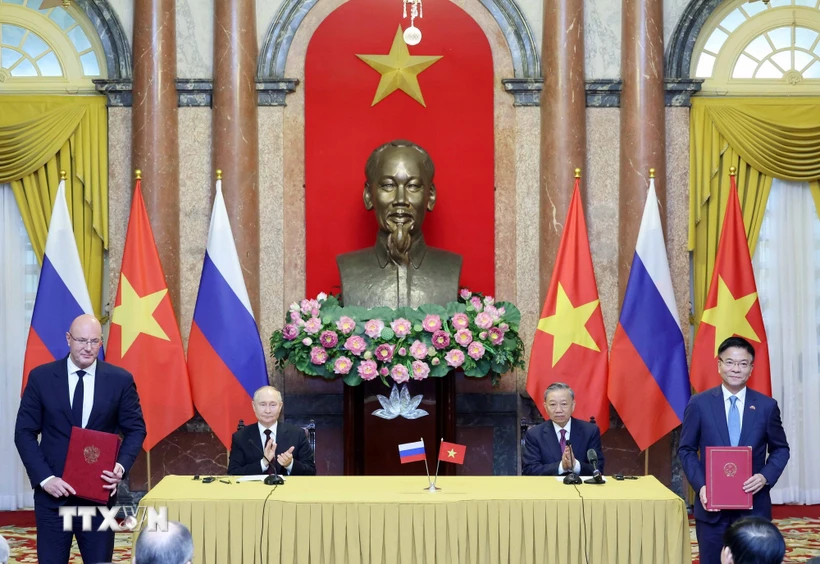
President of the Socialist Republic of Vietnam To Lam and President of the Russian Federation Vladimir Putin witnessed the exchange of signed documents between the two countries on the afternoon of June 20, 2024. (Photo: Nhan Sang/VNA)
During the visit to Russia of General Secretary of the Communist Party of Vietnam To Lam and the high-ranking Vietnamese delegation, Deputy Prime Minister and Minister of Foreign Affairs Bui Thanh Son gave an interview to the Russian press about Vietnam's foreign policy as well as Vietnam's vision in its relationship with Russia.
- Vietnam is a resilient nation throughout its history of fighting for independence and defending sovereignty against foreign invaders in the 20th century. Please tell us what valuable historical lessons have shaped Vietnam's foreign policy in international relations today?
Deputy Prime Minister and Minister of Foreign Affairs Bui Thanh Son: The great achievements in the struggle for independence, national reunification and renovation of Vietnam today all have the mark and important contribution of foreign affairs. The valuable historical lessons of the past 80 years still hold true and continue to guide Vietnam's foreign affairs in the new era, the era of national development.
The first is the lesson of ensuring the highest national interests. Foreign affairs are always imbued with President Ho Chi Minh's words: "We must always serve the interests of the nation." Today, national interests continue to be the guiding principle for action, the most important basis for determining Vietnam's foreign policy and guidelines, on the basis of equality, cooperation, mutual benefit, in accordance with the United Nations Charter and international law.
The second is the lesson of combining national strength with the strength of the times. In the current period, diplomacy continues to play a pioneering role in mobilizing favorable external conditions and resources such as the trend of peace, cooperation and development, the achievements of the 4.0 Industrial Revolution and development trends such as digital transformation and green transformation to serve the country's development.
Third is the close combination of foreign affairs with national defense, security and other fields in planning and implementing foreign policy. In the current period, we determine that together with national defense, security and other fields, foreign affairs plays an important role in contributing to protecting the country early and from afar, firmly ensuring independence, sovereignty and territory, creating a peaceful, stable and favorable international situation, and mobilizing resources and conditions to serve national development.
Fourth is the lesson of integration with the world, placing the country in the mainstream of the times; today is deep, comprehensive, and complete international integration, making international integration a driving force for development, becoming the cause of the entire political system and the entire people.
These valuable historical lessons continue to contribute to shaping Vietnam's foreign policy in the new era, in line with the international context, helping Vietnam continue to affirm and enhance its position in the international arena.
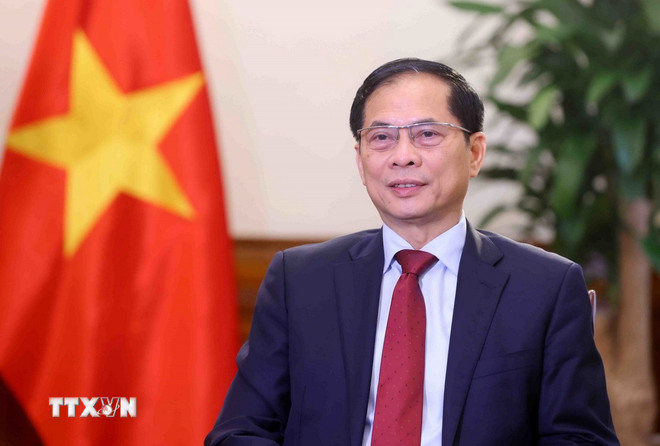
Deputy Prime Minister and Minister of Foreign Affairs Bui Thanh Son. (Photo: Pham Kien/VNA)
- The prolonged tension between the US and China is posing challenges to security and stability in the Asia-Pacific region. Meanwhile, Vietnam is being assessed by the international community as one of the countries with a particularly important role in the regional security structure. Please tell us what are the principles and policy adjustments that help Vietnam maintain the balance between major power centers in the current complex context?
Deputy Prime Minister and Minister of Foreign Affairs Bui Thanh Son: Vietnam's consistent and continuous foreign policy is independence, self-reliance, multilateralization and diversification of relations, being a friend, a reliable partner, a responsible member of the international community, proactively and actively integrating deeply and comprehensively into the international community. Vietnam's foreign policy principles and motto are to ensure the highest national interests on the basis of the United Nations Charter and international law; resolutely and persistently fight to firmly protect independence, sovereignty, unity and territorial integrity, "responding to all changes with the unchangeable" to maintain peace and stability, and restore national construction and defense.
Vietnam implements a "four no's" defense policy: no participation in military alliances; no ally with one country to fight another; no allowing foreign countries to set up military bases or use its territory to fight against other countries; and no use of force or threat of use of force in international relations.
On that basis, despite the current fluctuations in the international and regional environment, Vietnam has created an open foreign policy landscape with diplomatic relations with 194 countries, is an active member of more than 70 international multilateral organizations and forums, has built a network of strategic and comprehensive partnerships with 34 countries, has friendly relations, and has active and substantive cooperation with major countries, especially has strategic partnerships or higher with all non-permanent members of the Security Council. At the same time, Vietnam has increasingly made positive and responsible contributions to handling global issues and common concerns of the international and regional communities, promoting the central role of ASEAN in the regional structure.
On Vietnam-Russian Federation relations
- Victory Day, May 9, has a special meaning for the people of the Russian Federation and peace-loving people around the world. Please share your assessments and feelings about this important historical event?
Deputy Prime Minister and Minister of Foreign Affairs Bui Thanh Son: May 9, 1945 is a great historical milestone not only for the people of the former Soviet Union and the Russian Federation today, but also for all peace-loving humanity and for the revolutionary and national liberation movements around the world. This is the day marking the event when the Soviet Red Army crushed fascism, severely weakened the colonial system of European empires, and ended the most devastating war in human history - World War II on the European front.
Along with that, the Soviet Union's victory in the Great Patriotic War in 1945 was also a strong and great source of encouragement for movements fighting for national independence, democracy and social progress around the world, especially in Asia, Africa and Latin America, including Vietnam.
This great victory also created the foundation for today's world multilateralism, creating a strong shift in the world political situation, most notably the birth of the United Nations with basic principles of international relations such as respect for equality and self-determination among nations; resolving disputes by peaceful means..., contributing significantly to shaping a new world order after the war and the future of humanity for the rights and interests of people around the world.
May 9 is the day of victory of justice and righteousness and a wake-up call to humanity about the disastrous consequences of war and the rise of extremism, and also a day of remembrance, gratitude and deep gratitude to those who fell for independence, freedom and peace. Celebrating the 80th anniversary of Victory Day, we are more deeply imbued with the historical values, indomitable fighting spirit and aspiration for peace that victory brings. The victory of the Soviet Red Army and progressive peace-loving forces around the world will forever be remembered and honored.
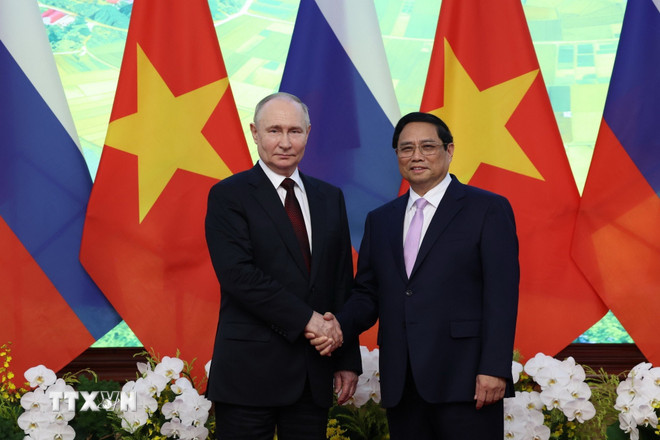
Prime Minister Pham Minh Chinh met with Russian President Vladimir Putin during his state visit to Vietnam on the afternoon of June 20, 2024, at the Government Office. (Photo: Duong Giang/VNA)
- Russian President Vladimir Putin assessed Vietnam as one of the most reliable partners of the Russian Federation. During the 75 years of establishing diplomatic relations, the two countries have implemented many important cooperation projects in many fields, from energy, defense to education and culture. Please tell us what are the core principles for Vietnam and Russia to maintain and promote the Comprehensive Strategic Partnership framework throughout history and in the current period? What are the most outstanding cooperation results between the two countries in recent times, and what are the priority cooperation areas that the two countries wish to further promote in the coming time? Please share more about the important contents that will be discussed in Moscow during the visit?
Deputy Prime Minister and Minister of Foreign Affairs Bui Thanh Son: 75 years ago, Vietnam and the Soviet Union officially established diplomatic relations, laying a solid foundation for bilateral relations in all areas of bilateral cooperation and at international and regional forums. The Party, State and People of Vietnam always remember the enormous, sincere and wholehearted assistance and support of the Soviet Union throughout the struggle for national independence and national construction. That comprehensive, great and valuable support and assistance over many decades has been an important factor contributing to the success of the cause of national liberation, national reunification, construction and defense of the Fatherland of the Vietnamese people. The Vietnam-Russia relationship today has continued to inherit and continue the good, close and close traditional friendship and cooperation of the Vietnam-Soviet Union relationship in the past.
In 1994, the Treaty on the Fundamental Principles of Friendly Relations between the Socialist Republic of Vietnam and the Russian Federation was signed. Based on this treaty, the Vietnam-Russia friendly and cooperative relationship has been increasingly developed and enhanced, with 2012 being the milestone marking the establishment of a comprehensive strategic partnership between the two countries.
With the fundamental, core principles and long history of bilateral relations, along with the joint efforts of the two countries, this year marks the 75th anniversary of Vietnam and Russia together building cooperative relations in all fields, in line with the interests of the two countries, a priceless asset of the two peoples and a model of traditional friendship and mutually beneficial cooperation.
In the political and diplomatic fields, the two countries have high trust, which has been increasingly strengthened through visits at all levels, especially at high levels. The two sides maintain many coordination and dialogue mechanisms on diplomacy, defense and security.
In the economic and trade field, Vietnam and Russia have maintained the Intergovernmental Committee for Economic-Trade and Scientific-Technological Cooperation mechanism since 1992 and upgraded to the Deputy Prime Minister level since 2011. The Free Trade Agreement between Vietnam and the Eurasian Economic Union, of which Russia is a member, has been effective since 2016. Trade exchanges between the two countries have been maintained in recent times. Bilateral trade turnover in 2024 reached 4.58 billion USD. Russia currently has 199 investment projects in Vietnam with a total registered capital of 990 million USD. Vietnam has 16 investment projects in Russia, with a total registered capital of 1.6 billion USD, ranking 4th out of 81 countries and territories in which Vietnam has invested.
Regarding education and training cooperation, the Soviet Union previously helped Vietnam train nearly 40,000 excellent cadres and experts in many different fields. Currently, Russia continues to support Vietnam in training human resources and there are currently more than 5,000 Vietnamese students studying in Russia. Scientific and technological cooperation continues to be maintained. The two countries have carried out research and technology transfer projects. Scientific research cooperation within the framework of the Tropical Center in Vietnam has brought many positive results. The two sides are implementing the project of the Nuclear Science and Technology Research Center. Local cooperation has been strengthened and there are currently about 20 pairs of relations between localities of the two countries established, especially between Hanoi, Ho Chi Minh City and Moscow, Saint Petersburg.
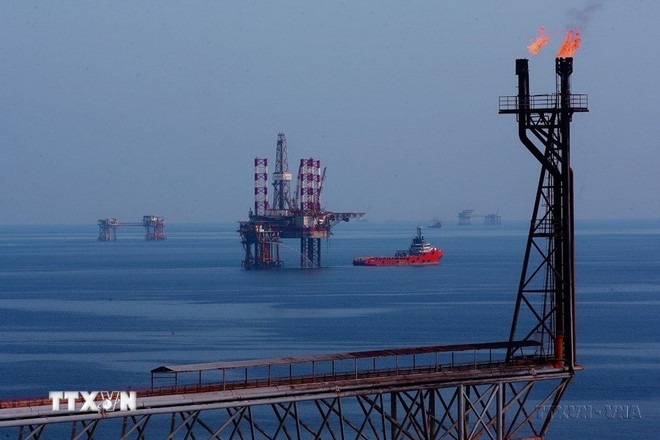
Central technology platform No. 2 of Bach Ho field of the Vietnam-Russia joint venture (Vietsovpetro). (Photo: Huy Hung/VNA)
The two countries also closely coordinate at multilateral forums and international organizations such as the United Nations, the Asia-Pacific Economic Cooperation Forum (APEC), the Asia-Europe Meeting (ASEM), the ASEAN Regional Forum (ARF)... In particular, the community of about 80,000 Vietnamese people in Russia has been making significant contributions to the development of the two countries and bilateral relations.
On the occasion of General Secretary To Lam and his wife and the high-ranking Vietnamese delegation attending the Victory Day celebration in the Great Patriotic War and making an official visit to the Russian Federation, Vietnam wishes to express its respect and honor for the enormous contributions and sacrifices of the former Soviet Union and the Russian Federation today in the great victory against fascism, firmly protecting world peace.
On this occasion, Vietnam also wishes to further strengthen political trust between the two countries, identify orientations to bring the traditional friendship and comprehensive strategic partnership with Russia to new heights, and strengthen cooperation between the Communist Party of Vietnam and major political parties in Russia.
During the visit, General Secretary To Lam and the high-ranking Vietnamese delegation will have important meetings with senior Russian leaders, thereby creating new impetus for bilateral cooperation in many fields, including traditional cooperation fields and new, potential fields such as economics, trade, investment, basic science, energy, high technology, Artificial Intelligence, etc.; creating more important driving forces to realize the development goals of the orientation in the Vietnam-Russia bilateral relationship, for the benefit of the people of the two countries, for peace, stability, cooperation and development in the region as well as in the world.
- Russia is expanding energy cooperation with countries in the Asia-Pacific region, including traditional areas such as oil and gas and new areas such as nuclear energy for peaceful purposes. Please tell us what role Vietnam can play in the new energy cooperation structure of the region?
Deputy Prime Minister and Minister of Foreign Affairs Bui Thanh Son : Energy is one of the strategic pillars of cooperation in the Vietnam-Russia Comprehensive Strategic Partnership, demonstrating the spirit of friendship and tradition between the two countries.
For many years, oil and gas cooperation activities between Vietnam and Russia have been effectively implemented in accordance with international law, thereby contributing positively to peace, stability, cooperation and development in the region as well as in the world. Russia is currently a major partner of Vietnam in the energy sector, especially in oil and gas projects. The two joint ventures Vietsopetro and Rusvietpetro are operating very effectively in the field of oil and gas exploration and exploitation in Vietnam and Russia.
In recent times, the two countries have also made concrete progress in nuclear energy cooperation for peaceful purposes, while expanding cooperation to new energy fields such as renewable energy and green transportation.
In the region, with its geostrategic position, Vietnam is actively participating in energy cooperation and energy security mechanisms within the frameworks of ASEAN, ASEAN +3, APEC, etc. We believe that as a country with a long-term, trustworthy, and traditional relationship with Russia in energy, Vietnam is ready to be a bridge to exchange and share cooperation experiences with Russia and other countries in this field.
Vietnam wishes to learn more from its partners, especially about high and new technologies, thereby creating a good foundation to promote effective cooperation between countries in the energy sector, contributing to ensuring energy security, promoting sustainable development of Vietnam, thereby contributing to peace, stability and development of the region and the world./.
(Vietnam News Agency/Vietnam+)
Source: https://www.vietnamplus.vn/viet-nam-muon-dua-quan-he-doi-tac-chien-luoc-toan-dien-voi-nga-len-tam-cao-moi-post1037215.vnp



![[Photo] Ho Chi Minh City residents show their affection to celebrate the 80th anniversary of the August Revolution and National Day September 2](https://vphoto.vietnam.vn/thumb/1200x675/vietnam/resource/IMAGE/2025/9/3/55d860cbb63a40808e1e74ad9289b132)
![[Photo] National Assembly Chairman Tran Thanh Man meets with First Secretary and President of Cuba Miguel Diaz-Canel Bermudez](https://vphoto.vietnam.vn/thumb/1200x675/vietnam/resource/IMAGE/2025/9/2/c6a0120a426e415b897096f1112fac5a)
![[Photo] Lao President Thongloun Sisoulith and President of the Cambodian People's Party and President of the Cambodian Senate Hun Sen visit the 95th Anniversary Exhibition of the Party Flag Lighting the Way](https://vphoto.vietnam.vn/thumb/1200x675/vietnam/resource/IMAGE/2025/9/2/3c1a640aa3c3495db1654d937d1471c8)
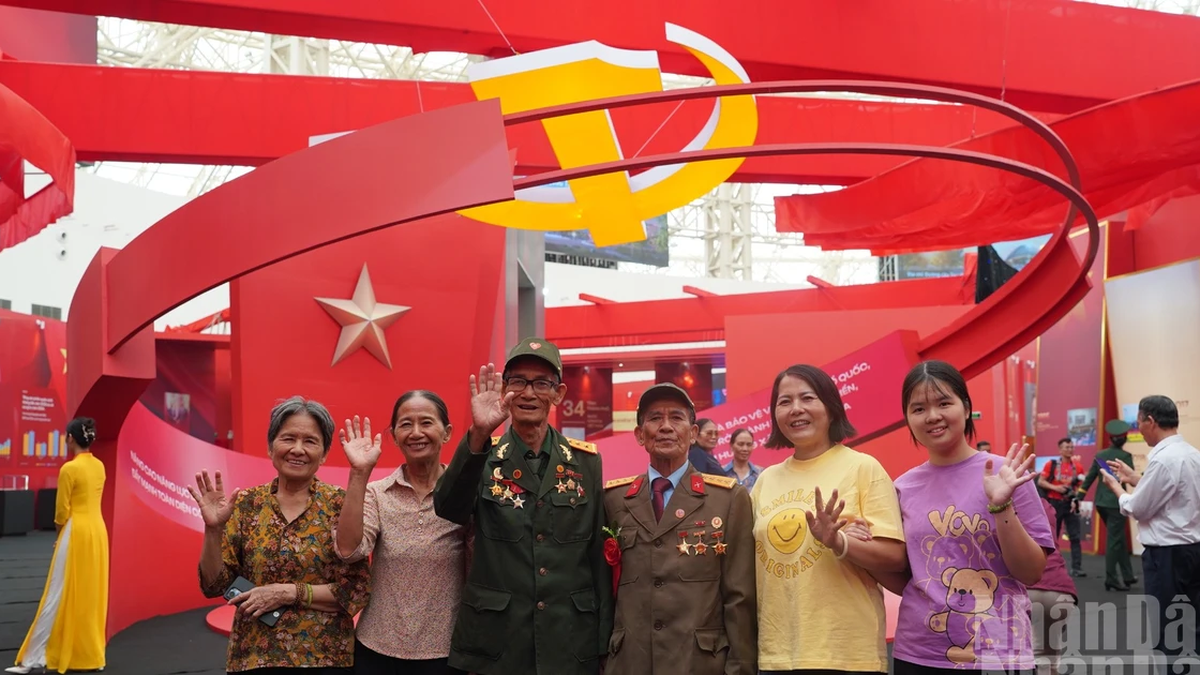
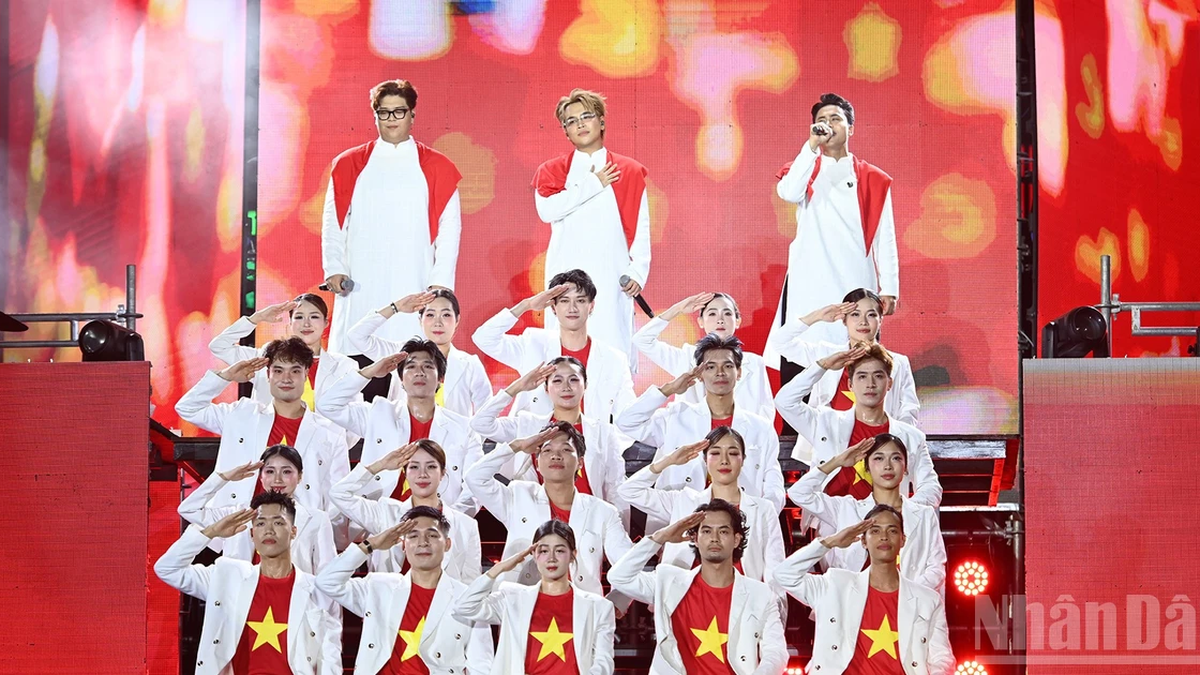
![[Photo] Special art program "Da Nang - Connecting the future"](https://vphoto.vietnam.vn/thumb/1200x675/vietnam/resource/IMAGE/2025/9/2/efdd7e7142fd45fabc2b751d238f2f08)


![[Photo] Beautiful images of the marching blocs at the 80th National Day Celebration](https://vphoto.vietnam.vn/thumb/402x226/vietnam/resource/IMAGE/2025/9/2/2ae930dfd77b442f9ac75f181d7f4bd6)
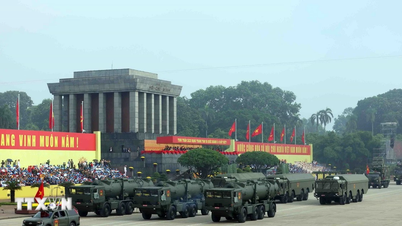
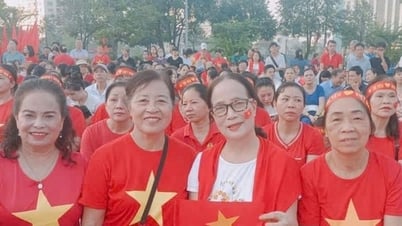



![[Photo] National Assembly Chairman Tran Thanh Man receives Cambodian Senate President Hun Sen](https://vphoto.vietnam.vn/thumb/402x226/vietnam/resource/IMAGE/2025/9/1/7a90c9b1c1484321bbb0fadceef6559b)
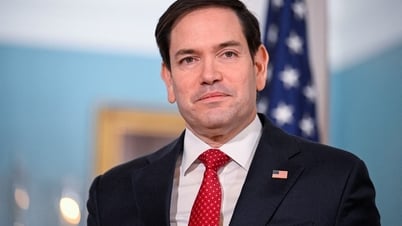



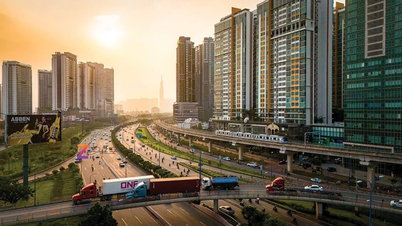

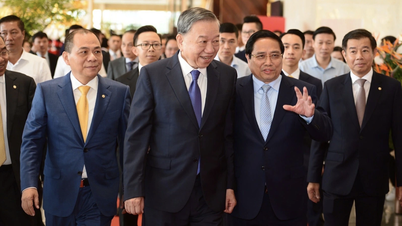



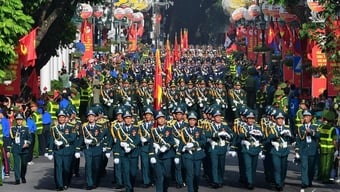
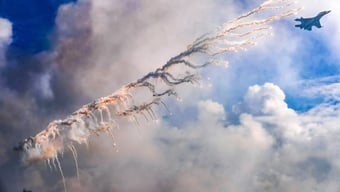
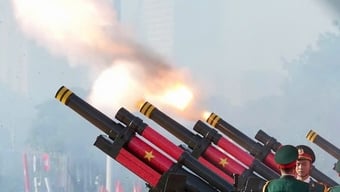
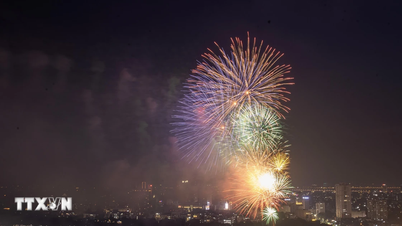
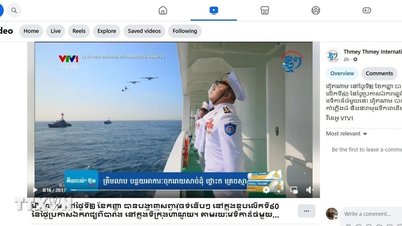
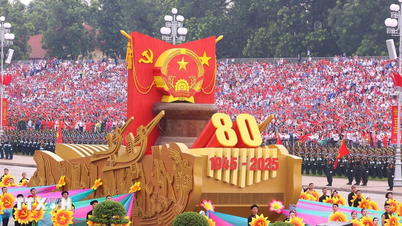
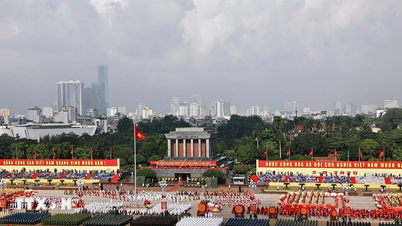
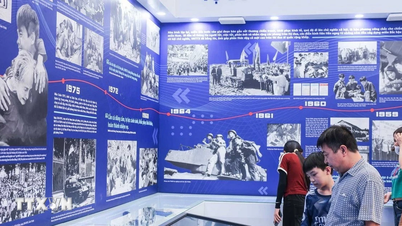
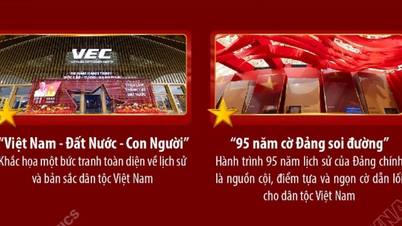







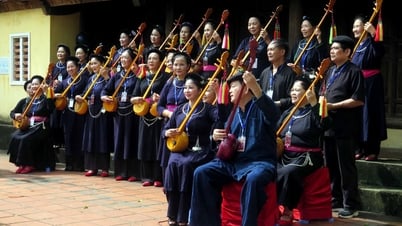

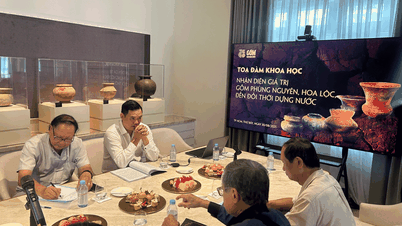

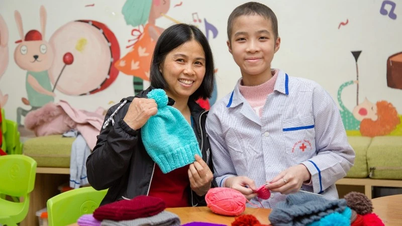
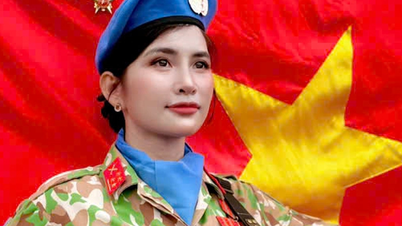

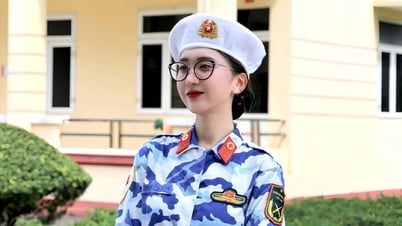

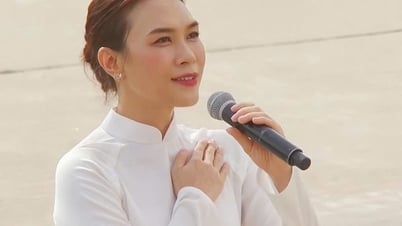


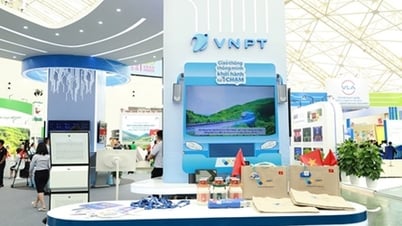






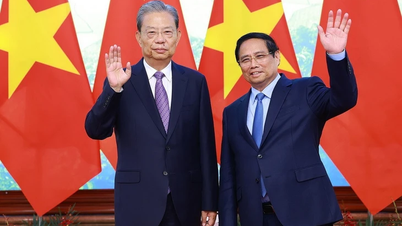
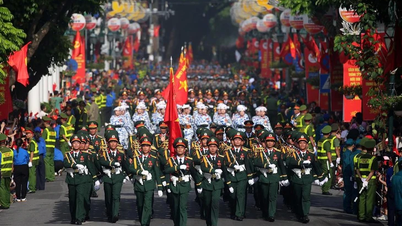
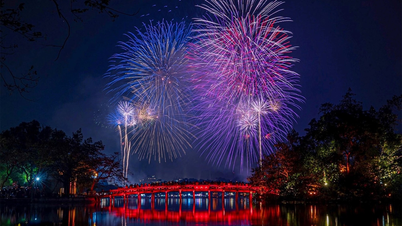
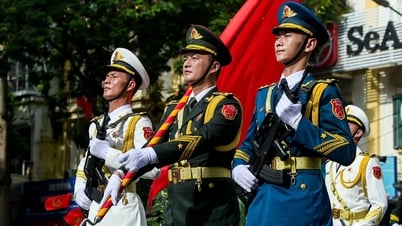
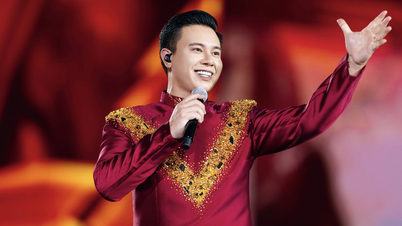
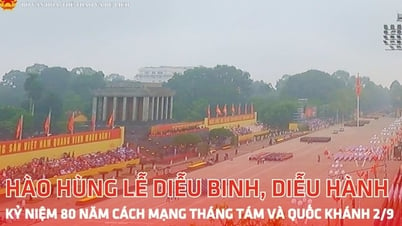

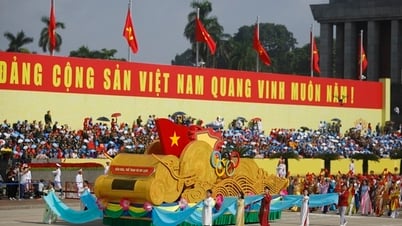

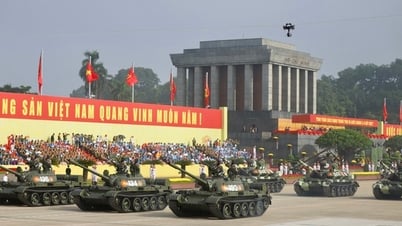
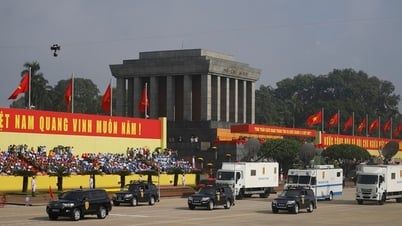

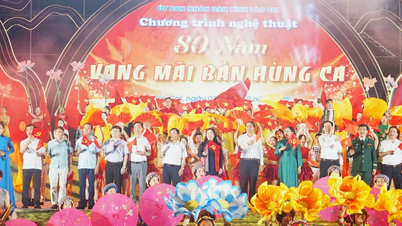

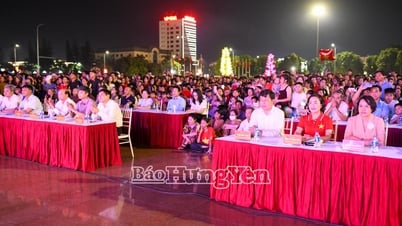

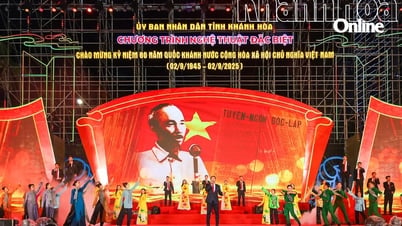

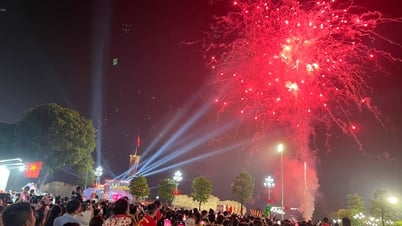

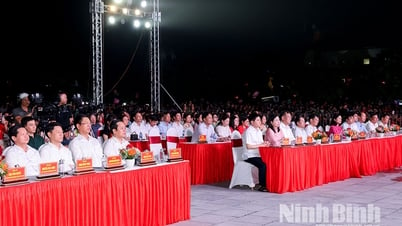



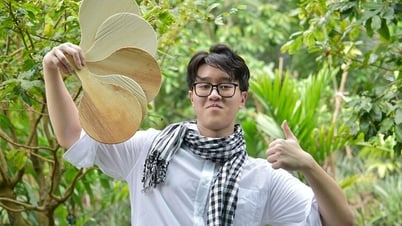

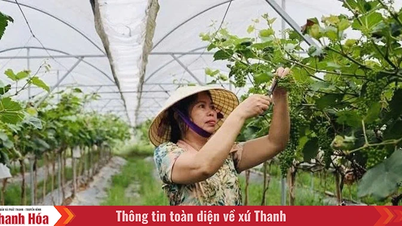

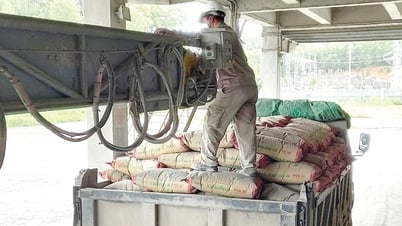

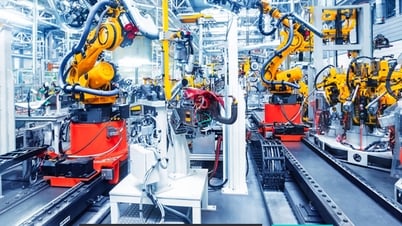

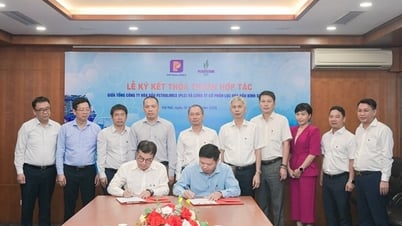

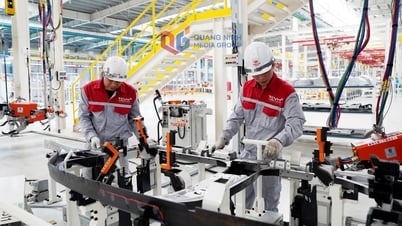



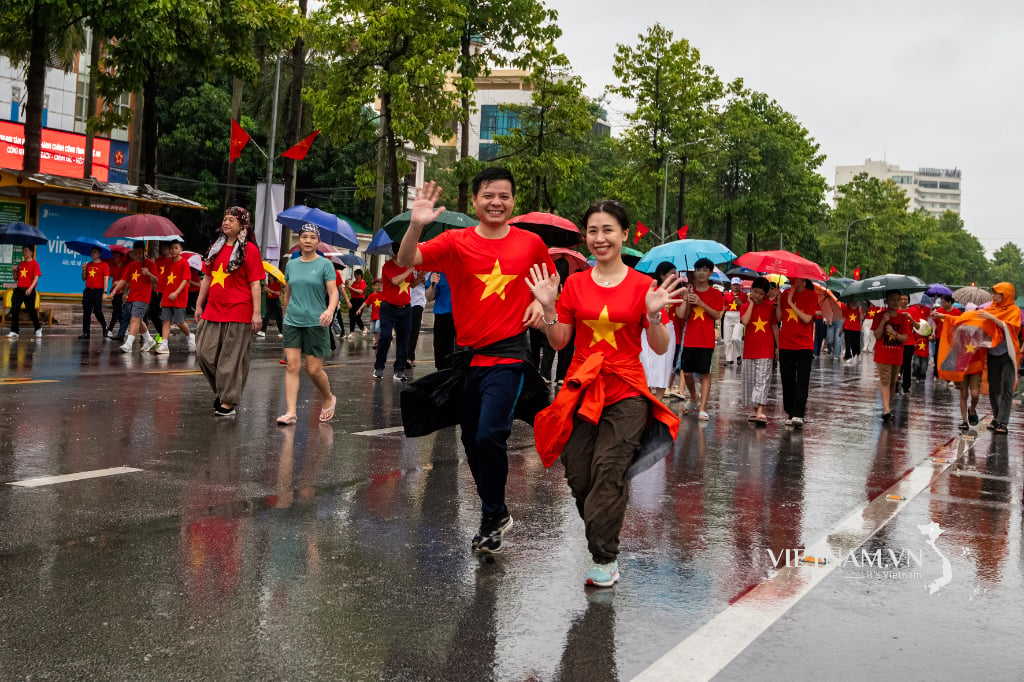
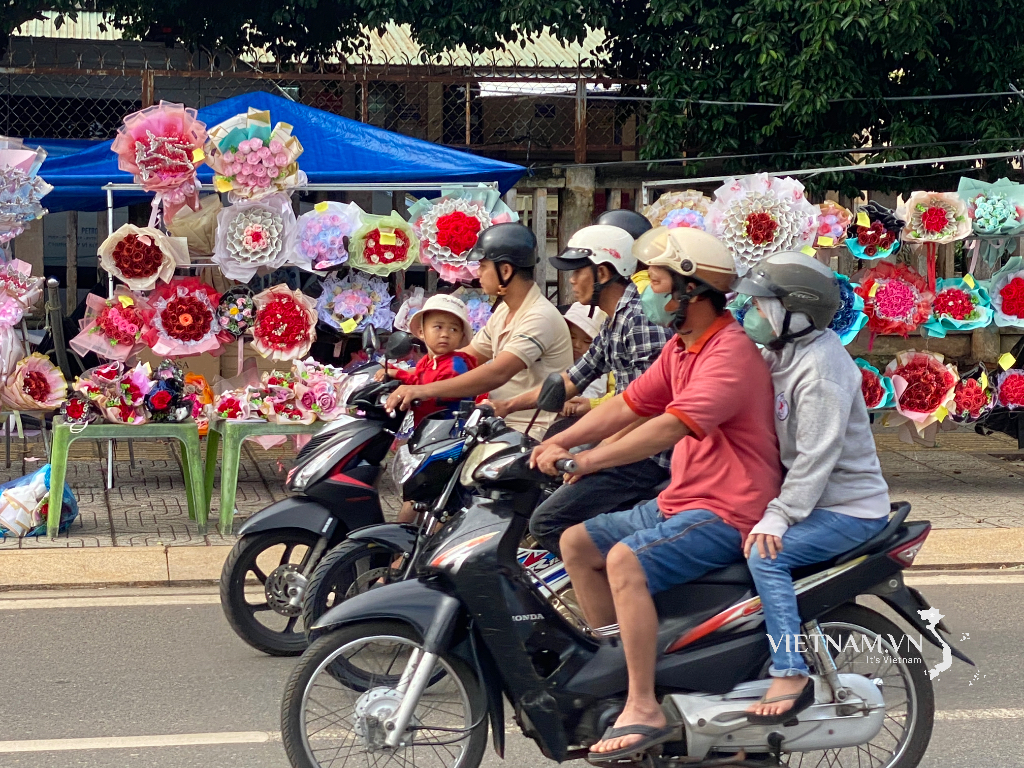
Comment (0)